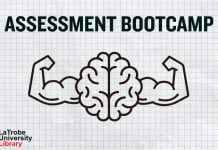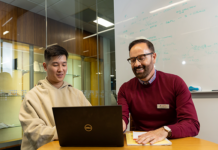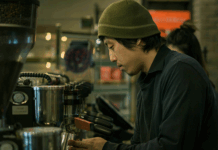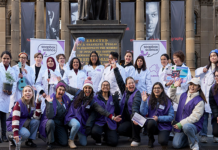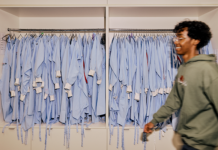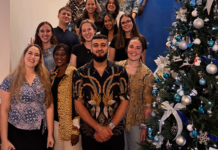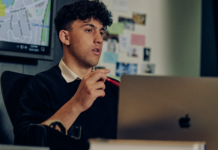In 2016, La Trobe Senior Lecturer Dr. Benjamin Habib had an anxiety attack on live national television during a guest appearance as a political analyst. While this highly publicised experience resulted in what Dr. Habib refers to as “the worst public embarrassment of [his] career”, it was also the launching pad for a celebrated public profile as a mental health advocate. A search for answers as to what had triggered his meltdown that day also sparked a journey of self-discovery, with Dr. Habib ultimately coming to the unexpected, late-life realisation that he is Autistic.
This April we celebrate International Autism Acceptance Month, alongside a brand-new Neurodiversity webpage for La Trobe’s Neurodiversity Project. The Neurodiversity Project aims to increase acceptance and accessibility for La Trobe’s Neurodiverse staff and student cohorts through providing resources like a free, public access Neurodiversity Cultural Sensitivity and Accessible Event Planning Guide, alongside Neurodiversity Ally and Accessibility Training workshops for staff, and several other initiatives aimed at fostering a sense of Neurodiversity community on campus.
To mark Autism Acceptance month this April, Neurodiversity Project Officer and fellow Autistic academic Beth Radulski interviews Dr. Benjamin Habib on his newfound identity as an Autistic person, and what being Autistic has revealed to him about his past as an undergraduate student, his career as an academic, and his sense of community belonging at La Trobe.
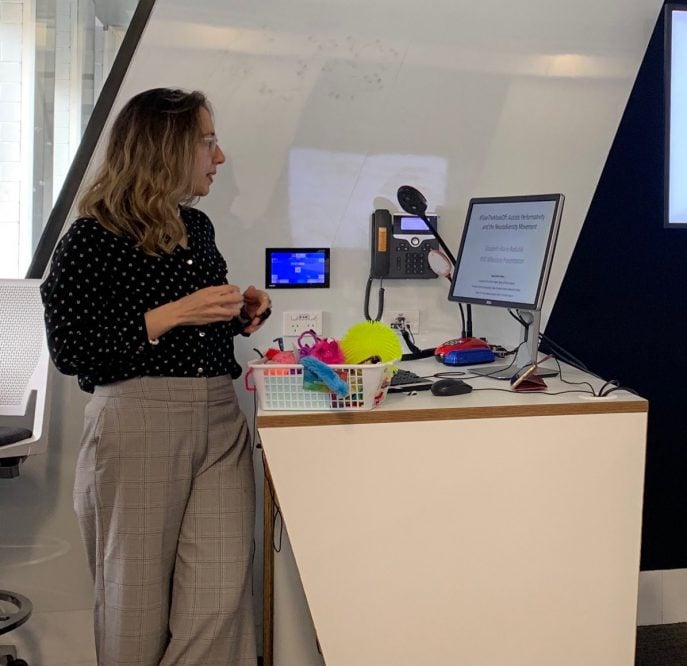
Beth: As an Autistic student at La Trobe I had so many brilliant lecturers, some of whom I’m sure were Autistic like you and I. However, since none of them were ‘out’, I chose not to disclose either, fearing that the risks could outweigh the benefits. When I did come out as Autistic to pursue a PhD on Neurodiversity, I became La Trobe’s first openly Autistic Autism researcher. Once La Trobe established the Neurodiversity Project, one of our biggest goals was to create a cultural shift towards Neurodiversity acceptance and community, so that the benefits of being openly Autistic on campus far outweighed the risks. I’m so honoured to say that the project has now reached a huge milestone with you Ben, because you are La Trobe University’s first openly Autistic lecturer!
Tell me about your experiences as a student. In hindsight, how did being Autistic impact your studies (even if you didn’t know it at the time), and how did your Autistic traits influence your decision to pursue an academic career?
Ben: The first time I became a student I started out doing a science degree at university, and I failed spectacularly [and] ended up dropping out of that degree program. When I came back, I did a Bachelor of Arts… and discovered International Relations and Politics… and was like wow this is my thing, I’m really into this, and that helps! Being into it gave me really laser-like focus on doing this work and getting it down, and I absolutely loved it.
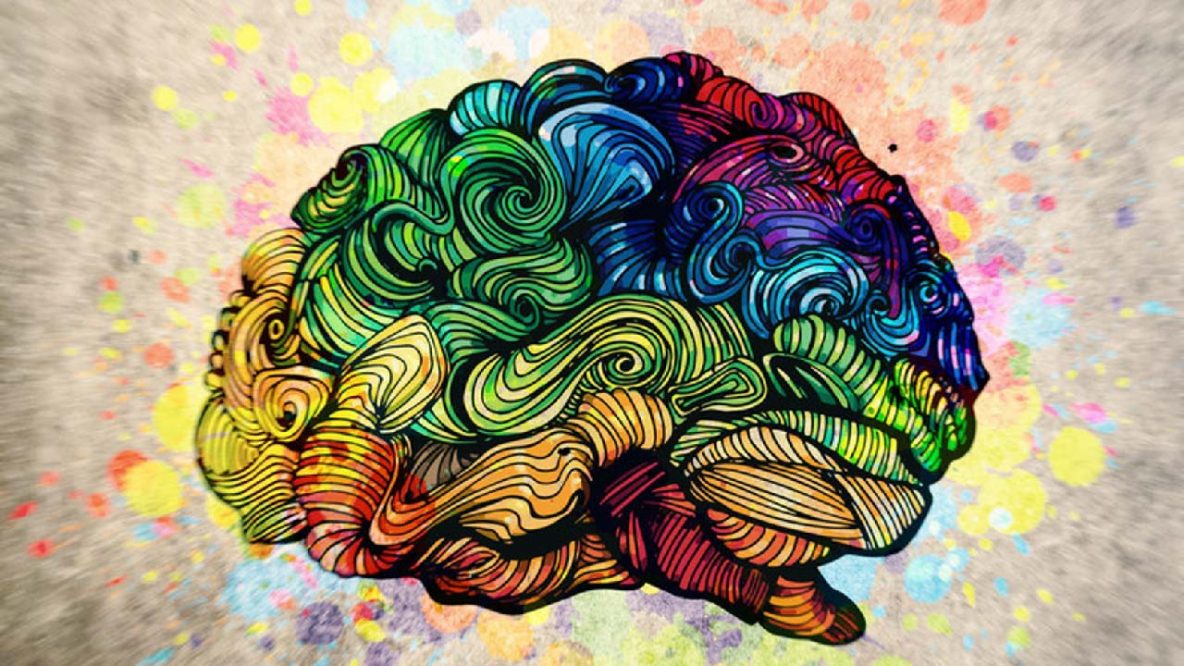
Beth: What about politics sparked your interest so much?
Ben: I think it’s that I’ve got a capacity to recognise patterns and relationships at an almost intuitive level, which I realised is actually not [Neuro] typical. So, that’s really good for being a political analyst. You can really recognise power relationships, and not just from pattern recognition but also from being on the wrong end of being bullied… because it’s in your survival interest to understand [power relations]… That skill or that attribute has been very valuable in this particular field—I think that’s why I’m uniquely suited to it.
Beth: We all know the stereotype of academia being a very nurturing environment for Autistic minds—why do you think so many Autistic people thrive in this setting?
Ben: Give us a task that we’re really into, and we can devote all of our attention to it for long periods of time… Give an Autistic person a task that’s totally in their field of interest, and they will have a very high degree of speciality and quality. I think that’s part of what makes me good as an academic.
Beth: Still, there can be a lot of ambivalence amongst students and staff debating coming out as Autistic, due to a fear of negative stereotypes impacting their studies or careers. Let’s challenge these views: Give me your best elevator pitch about why being Autistic makes you an excellent student and academic.
Ben: Everyone’s neurodivergent profile is different… if I spoke to mine, I’d come back to that point about understanding patterns in relationships… clearly that’s a benefit. So you know, if it was doing research assistance or tutoring… engaging with students with duty of care, then I think that the empathy aspect [is beneficial]…
Beth: What you are saying contradicts the very damaging stereotype of Autistic people lacking empathy, so why do you think that empathy is a strong point for so many Autistic people?
Ben: Having the experiences being bullied, or just the constant grind of having to navigate society and being tired all the time, the sensory issues… can flip that from something that has been traumatic, into something that’s positive, that helps you relate to other people that are going through it. [Empathy is] a real entry point for students to have a high level of trust… to come and engage through learning.
Beth: Despite all of these Autistic aspects of your identity, you’ve spoken and written about not knowing that you are Autistic until adulthood. Why do you think that is?
It’s not like understandings of autism are particularly well developed… In my first year [of university] I started to recognise something wasn’t quite right, when something was there that was making me depressed, giving me anxiety… I was looking for some kind of external thing that was making me feel that way…
The [Neurodiversity Ally and Accessibility] workshop with you [Beth], I can’t stress enough how much of a lightbulb that moment that was… You started out by talking about some of your experiences as a student, and so that was the small lightbulb moment—’I resonate with that that, that seems similar to some of the things that I’ve experienced’. But it was when you handed out the stim [fidget] toys—that completely changed my experience at the meeting in a really profound way. All of a sudden, I was present! I wasn’t concentrating on what my body was doing, I was just in the room listening and participating and feeling a lot more relaxed. It dramatically reduced my anxiety… I always hated meetings, but this was radically different, and that was the big lightbulb moment that [Autism] is something that I really need to investigate.
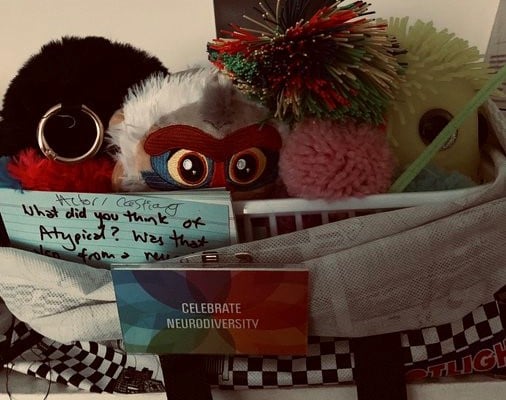
Beth: Once you were officially diagnosed, were you ambivalent about coming out as Autistic at La Trobe?
Ben: I’d already come out with anxiety and depression [after my meltdown on TV] and this was the logical endpoint of that journey… I thought it would save me a lot of time if I just come out [publicly as Autistic], because I don’t want to have to come out privately 1000 times… If you’re not out, you have to have that same conversation with every lecturer, with every colleague, and explain the same thing—that’s a really draining process, so for me it was just easier… Having said that, I’m a bit older, and in secure employment… [so I felt] a responsibility for me to come out, and do it because I can… Talking about it candidly in public helps the people around you… [The Autistic students I’ve met] have been really encouraged and empowered because I’ve been out there talking about it.
Beth: What advice would you give to Autistic staff and students who are either questioning their Autism status, or who may want to come out to their peers and colleagues on campus?
Ben: You are never going to get more institutional support anywhere in society than you will as an undergraduate student at a University… So this is the time to go on that journey of self-discovery, when the university is a safe space, relatively speaking compared to what’s outside. When you’re here, this is the space to learn more about yourself, and to come out.
Information on seeking Neurodiversity support at La Trobe is available through AccessAbility Hub.
Beth: What do you think about the idea of having a Neurodiversity community on campus to support this ‘coming out’ journey?
Ben: To have that in my life anywhere would have been amazing. What I’m searching for now, I don’t think I can speak to how profound that would be, to have that…. To not have to try so hard [to fit in]… To just ‘be’…
One of the major goals our Neurodiversity Project is working towards is establishing a Sensory Room as a Neurodiversity community space on campus. I will never forget my first time walking into a sensory room at an Autism conference—with natural lighting from the windows, all of the overhead lights are off, there are colouring stations, and fidget toys, and bean bags, and earplugs—and I burst into [happy] tears, because I was 28 years old, and that was the first time in my entire life I’d walked into a room that was built for me—ever. The feeling that this was my space, this was where my community could be safe and comfortable, and like you said, just be, was really profound. What do you think it would mean for La Trobe’s Neurodiversity community if we had a sensory room? What would it have meant to you as a student, or throughout your career, to have had that sense of community on campus?
Ben: I’m 42 and I’ve never had that. [I’ve felt] this longing for community, but I’m kind of terrified, because I’ve never had it before… I haven’t found it yet, but I’m looking forward to finding it.

